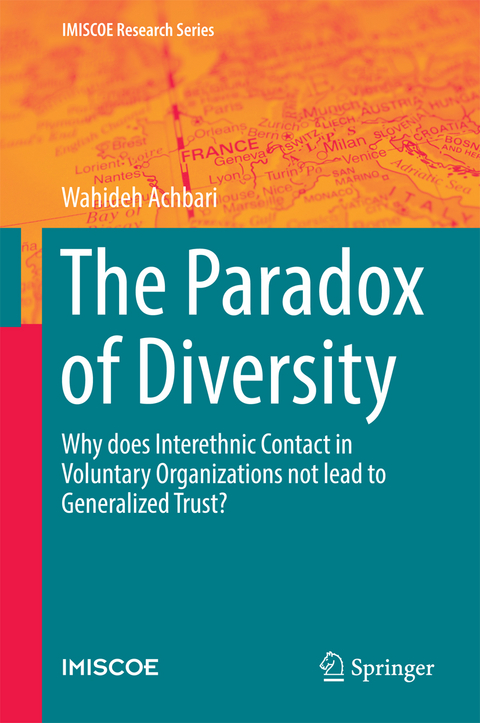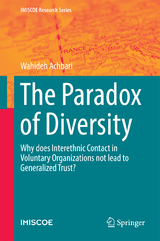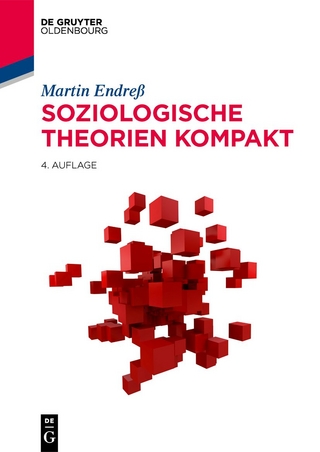The Paradox of Diversity
Why does Interethnic Contact in Voluntary Organizations not lead to Generalized Trust?
Seiten
2016
|
1st ed. 2016
Springer International Publishing (Verlag)
978-3-319-44241-9 (ISBN)
Springer International Publishing (Verlag)
978-3-319-44241-9 (ISBN)
This book is about ethnic diversity in voluntary organizations and seeks to explain whether intergroup contact contributes to the development of generalized trust. It relies on a novel multilevel design and data from Amsterdam in which 40 voluntary organizations and 463 participants have been sampled. Contrary to conventional wisdom, this book argues that cognitive processes are contributing more toward the evaluation of strangers or generalized trust than interethnic contact. Since trusting unknown people is essentially a risky endeavor, this suggests that participants of both association types who report trusting strangers can afford to do so, because they are better educated, have a more positive worldview, and have had fewer negative life experiences. That is to say, they are socially more successful and view their future as more promising. Previous findings are inconclusive since most studies that conclude diversity has led to less generalized trust do not include interethnic contact directly in their analyses. These studies also downplay the importance of cognitive processes, which may shape generalized trust. What is more, people join ethnically diverse civic groups, because they already have more trustful attitudes, rather than learning to trust through interethnic contact. Despite the recent multiculturalist backlash, this book demonstrates that participation in ethno-national organizations does not pose a threat to social cohesion. The analysis in this book serves to build a general theory of trust that moves beyond emphasizing interaction between people who are different from each other, but one that includes the importance of cognition.
Chapter 1: Introduction: Why this book? .- Chapter 2: Bridging versus Bonding Practices: Setting the Context.- Chapter 3: Generalized Trust: Socialization through Interethnic Contact?.- Chapter 4: Who Can Afford to Evaluate Strangers as Trustworthy?.- Chapter 5: Discussion and Conclusion: The Promise of Social Success.
| Erscheinungsdatum | 08.10.2016 |
|---|---|
| Reihe/Serie | IMISCOE Research Series |
| Zusatzinfo | XIV, 145 p. 23 illus. |
| Verlagsort | Cham |
| Sprache | englisch |
| Maße | 155 x 235 mm |
| Themenwelt | Sozialwissenschaften ► Soziologie ► Allgemeine Soziologie |
| Sozialwissenschaften ► Soziologie ► Spezielle Soziologien | |
| Schlagworte | Bridging and bonding • cross cultural psychology • Ethnic Diversity • Ethno-national organizations • Generalized trust • Interethnic contact • Migration • Political Science • Social Sciences • Sociology, general |
| ISBN-10 | 3-319-44241-4 / 3319442414 |
| ISBN-13 | 978-3-319-44241-9 / 9783319442419 |
| Zustand | Neuware |
| Informationen gemäß Produktsicherheitsverordnung (GPSR) | |
| Haben Sie eine Frage zum Produkt? |
Mehr entdecken
aus dem Bereich
aus dem Bereich
Übersetzt von Rudolf Eisler, mit einem aktuellen Geleitwort von …
Buch | Hardcover (2021)
Alfred Kröner Verlag
12,00 €
Positionen und Perspektiven
Buch | Softcover (2024)
Springer Fachmedien Wiesbaden GmbH (Verlag)
79,99 €




